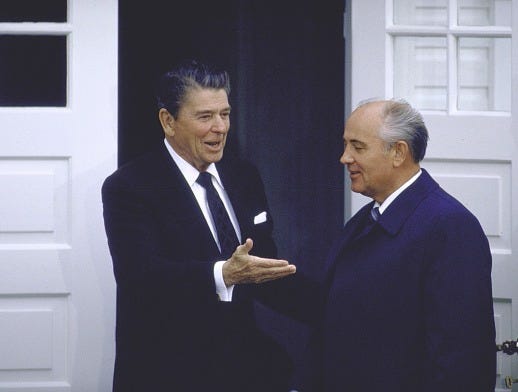
The much anticipated summit earlier this month in Anchorage was a flop: Putin rebuffed Trump’s request for a ceasefire, and the woefully unprepared Trump seemed more intent on finding a way to earn a Nobel Peace Prize than striking a realistic bargain on Ukraine.
What was missing in the public exchanges between Trump and Putin was any talk of a revitalized international treaty that would bar any nation from first use of a nuclear weapon, though I was told that the issue of mutual arms control was raised by Putin at the summit. Nonetheless, nuclear disarmament, once the most important response to a burgeoning nuclear world, is clearly out of favor in this White House.
This terrifying state of affairs was spelled out in a recent essay by Mark Medish, a Washington attorney and arms control and disarmament expert who spent years working at high levels in the Treasury, the State Department, and the White House. In 2000 he helped prepare the first US-Russia summit meetings after Putin took office. Writing in the Washington Spectator, Medish argued that a renewed major power interest in nuclear freeze talks is urgently needed because “the complexity of this subject has increased due to major technological advances in the nuclear, space, rocketry, biological and cyber/AI/quantum areas.”
I asked Medish about the importance of nuclear disarmament talks and why there are not any going on today.
HERSH: I have been a reporter covering international affairs for six decades, but I’ve never paid much attention to disarmament. The issue was just too boring. I remember in early 1973 when Leslie Gelb, a former Defense Department official, joined the New York Times after a stint as a fellow at the Brookings Institution. I had returned from a visit to Hanoi the year before and had had a helpful chat with him there about the state of the peace talks then being led by Henry Kissinger. I came away thinking the guy knew his stuff.
Gelb came to the Times primarily as a specialist on arms control and so he handled the ongoing talks between Kissinger and his Soviet counterparts on nuclear weapons disarmament. Despite my instinctive distrust of those who worked for Defense Secretary Robert McNamara, one of the major American liars on the progress of the Vietnam War, I found Les to be a delight as a colleague and a fellow skeptic on the war. (I would not learn for years that he was the director of the Pentagon Papers, a detailed account of the lies and blunders that turned the war into a civilian bloodbath.)
What Les could not understand, as he reported on Kissinger’s vital disarmament talks with Russia and China in the early 1970s, was the near total ignorance of some of the Times editors about the intricacies of those talks. Time after time Les would come to me in shock at the inability of the senior editors to know what was important and what wasn’t. Stories that he deemed vital would be whittled down in the editing process and consigned to the back pages of the paper. When the stories did make page one, they often were rewritten, to Les’s dismay, in nonsensical ways. (Gelb went on, nonetheless, to become a columnist for the Times and later served for a decade as president of the Council on Foreign Relations. He died in 2019 at the age of 82.)
So my first question to you is why does the media here and around the world have so little interest in international arms talks? Is it just too complicated? Or does other international wrongdoing—the ongoing horrors committed by Israel in Gaza, for example—suck the air out of that issue, and its need?
MEDISH: It’s up to our political leaders to focus on these paramount national security issues and explain why they are doing it to the public.
“Strategic stability” is not a catchy phrase. Arms control has never been a terribly sexy topic, but before the Cold War ended it could get some attention, for example when we came to the brink of nuclear confrontation with the Soviets during the Cuban Missile Crisis and a couple of other times. Of course, the blockbuster film Oppenheimer, which grossed nearly $1 billion, showed that the story of nuclear physics and the risk of Armageddon can still stimulate popular audiences.
Click this link for the original source of this article.
Author: Seymour Hersh
This content is courtesy of, and owned and copyrighted by, https://seymourhersh.substack.com and its author. This content is made available by use of the public RSS feed offered by the host site and is used for educational purposes only. If you are the author or represent the host site and would like this content removed now and in the future, please contact USSANews.com using the email address in the Contact page found in the website menu.





